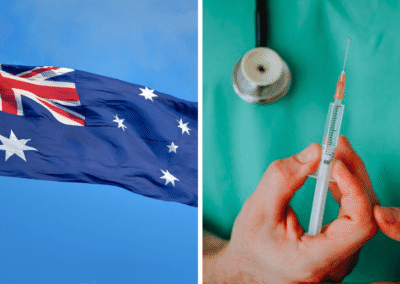Scottish First Minister John Swinney has shared “significant” concerns about teenagers as young as 16 and 17 being able to end their lives under a proposed assisted suicide law in Scotland.
The minimum age to access assisted suicide in Scotland, as proposed in Liam McArthur’s Assisted Dying for Terminally Ill Adults (Scotland) Bill, is 16.
SNP Leader John Swinney, who previously voted twice against introducing assisted suicide in Scotland in 2010 and 2015, said “An age threshold of 16 is for me a significant issue”.
Swinney said he is “wrestling” with the contents of McArthur’s Bill, adding that he has “not come to a final view about it”.
An unnamed MSP who supports the assisted suicide bill revealed that some initial supporters were “getting nervous” after the publication of the Bill’s details, particularly the age qualification. “There’s a definite drift away in support”, the supporter said.
Assisted suicide for 16-year-olds with anorexia
Swinney’s concerns come after an ethics expert argued that Scotland’s proposed assisted suicide Bill could allow assisted suicide for people with anorexia from as young as 16 years old. Professor David Albert Jones, Director of the Anscombe Bioethics Centre, has argued that the broad definition of terminal illness present in the Assisted Dying for Terminally Ill Adults (Scotland) Bill could allow state-assisted suicide for people suffering from anorexia.
“It is called the Assisted Dying for Terminally Ill Adults (Scotland) Bill, so that proclaims itself as being restricted to people who are terminally ill, but it defines people that are terminally ill only as people who have a progressive incurable disease, which is at an advanced stage. It doesn’t mean that you’re dying”, Professor Jones told the Daily Mail.
“Terminal in the Scottish Bill is defined as someone having a progressive incurable disease from which you could die. It could cover anorexia. There have been cases of people with anorexia having [assisted suicide] dying in Oregon in the US”.
He also drew attention to the fact that the legislation applies to children from the age of 16 and that there is no requirement for a psychiatric assessment ahead of an assisted suicide.
Dr Claud Regnard, Honorary Consultant for St Oswald’s Hospice, has similar concerns to Professor Jones saying “A 16-year-old in Scotland with anorexia nervosa would easily be eligible for assisted death if they said they won’t eat, as that would count as a terminal illness with a prognosis of less than six months – and they wouldn’t have to consult their parents”.
Decline in support for assisted suicide in Scotland
These comments about support fading would appear to be justified. Support for assisted suicide in Scotland has significantly declined in recent years according to an analysis of the data released earlier this year. Polling commissioned by the pro-assisted suicide lobby group, Dignity in Dying, showed that strong support for “assisted dying” in Scotland decreased from 55% in 2019, to 45% in 2023, and 40% in 2024, according to an article by Professor David Albert Jones, published in the Journal of Medical Ethics.
In a further setback to the Bill, the Scottish Health Secretary Neil Gray raised concerns earlier this month that Liam McArthur’s Bill is “outside the legislative competence of the Scottish parliament”. He also shared concerns about a “fundamental shift” in the role of medical practitioners, “from protecting/enhancing patients’ lives to assisting in termination of life”.
Spokesperson for Right To Life UK, Catherine Robinson, said “John Swinney is right to be concerned about the possibility that 16-year-olds would be able to take their own lives under McArthur’s reckless Bill”.
“The interpretation of terminal illness in Oregon has been broadened to include anorexia, arthritis, hernias and diabetes, and it would be naive to think that the same could not happen in Scotland. We urge John Swinney to do what he has done twice before: vote against this troubling Bill, and instead focus on prioritising palliative care and supporting Scots to live, not to die”.












